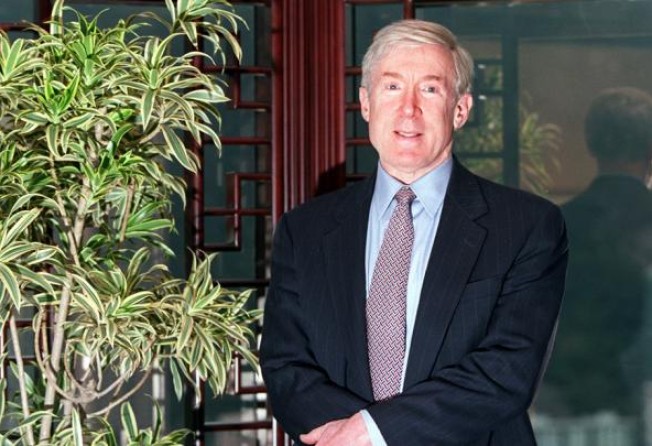State Department has 'real concerns' over Sino-US commercial ties
Piracy and 'unfair advantages' among stumbling blocks to Sino-US commercial ties, says Hormats

A senior US official yesterday expressed confidence in enhanced Sino-US economic co-operation after next month's presidential election but warned of "real concerns" from Washington over a host of problems.
US undersecretary of state Robert Hormats listed issues including the protection of intellectual property and the piracy of trade secrets as well as "unfair advantages" exploited by Chinese state firms as stumbling blocks in commercial ties. But he believed both sides would deal with the problems constructively.
"One of the things that has been very positive between our two countries is that there has been a strong bipartisan consensus in the US ... and I think there is a strong consensus among the leaders of China ... that the two sides need to work together on economic issues," he said when asked about the post-election environment.
He added: "We don't want a trade war with China - we don't think that China wants a trade war with the United States.
"Our two economies are very closely interlinked and ... given the huge amount of trade between our two countries, there are trade issues that go to the [World Trade Organisation], but they involve a relatively small amount of trade."
Hormats, undersecretary for economic growth, energy and the environment, spoke on the fringes of the International Monetary Fund and World Bank annual meetings in Tokyo.
His comments come amid fresh tensions in the Sino-US economic relationship, with US lawmakers this week calling for China's leading telecoms firms - Huawei Technologies and ZTE - to be shut out of US markets as a security threat.
Mitt Romney, the Republican presidential front runner, meanwhile, is vowing to brand China a currency manipulator should he win the election - a move which would spark tariffs against Chinese goods and potentially force a trade war.
Huawei officials reacted strongly to the US congressional report - which urged greater intelligence scrutiny just as the Shenzhen firm plots an initial public offering - describing it as an exercise in "China-bashing".
Hormats insisted that Chinese trade and investment was still welcome in the US, saying that the vast majority of trade was not the subject of disputes, and that 600 Chinese firms had investments. "We are encouraging Chinese investment in the US," he said, adding that most did not involve national security issues.
Hormats, who is due to meet Chinese officials in Tokyo, also said they would be working more closely to combat international wildlife smuggling. While noting that China was the world's biggest market for the trade, estimated to be worth US$5 billion to US$7 billion a year and which is backed by organised crime, he said the US did not want to target any specific country while working to build an international coalition to stop poaching and cool demand for animal products.